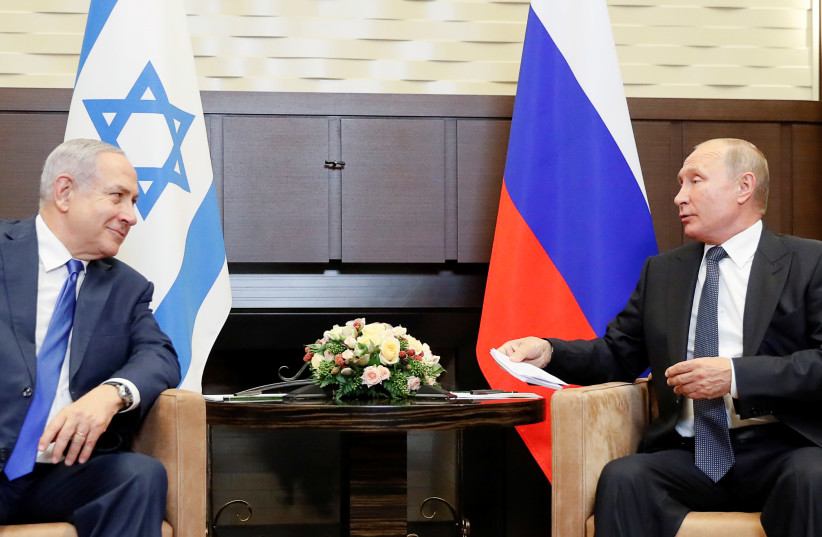Russia plans to open a branch of its embassy in Jerusalem in exchange for acknowledging the boundaries of Moscow’s historical and present ownership of the plot of land on which the office will be built, the sides announced on Friday.
The “branch office of the Consular Section of the Russian Embassy in Israel,” as the embassy calls it, will be opened on the corner of King George and Ma’alot streets in downtown Jerusalem, where a parking lot is currently located, after Russia and the Jerusalem Municipality, in cooperation with the Foreign Ministry, signed an agreement clarifying the boundaries of the plot.
The Foreign Ministry said the building complex will include a residence for Russian diplomats and a conference hall, which makes it more than a regular consulate.
The ministry called the agreement a “diplomatic achievement.”
Russia says Jerusalem branch office 'in line with Middle East policy'
Jerusalem Deputy Mayor Fleur Hassan-Nahoum said, “We are constantly in talks with many different countries about the recognition of Jerusalem as our capital and opening a presence in our city. We are pleased that this deal brings us a step closer towards that goal with the Russian Federation.”
The Russian Embassy stated: “We believe that this step fully serves the interests of further strengthening friendly multifaceted relations between Russia and Israel, as well it goes in line with our country’s unchanging course towards a fair Middle East settlement.”

Russia recognized western Jerusalem as Israel’s capital in 2017.
The US moved its embassy from Tel Aviv to Israel’s capital, Jerusalem, in 2018. There are currently three other embassies in the capital: Guatemala, Honduras and Kosovo. Ten countries have diplomatic offices in Jerusalem.
Foreign Minister Eli Cohen said two weeks ago that Hungary plans to upgrade its trade office in Jerusalem to an embassy, which would make it the first EU state to do so; Budapest has not confirmed or denied it, saying it’s a matter of timing.
Several other countries promised to move their embassies since 2018, most recently Paraguay.
According to Moscow, the plot of land in Jerusalem was acquired by Russia in 1885 and was listed in an “Inventory of all Russian real estate in Palestine and Syria, with the exception of private ownership” by Moscow’s consul Alexander Yakovlev in 1895.
Moscow lays claim to dozens of plots of land in the city, some of which have been tied up in legal disputes for years. The best-known is the Alexander Courtyard, the site of two churches and the subject of a dispute between Russian Orthodox Church organizations, one of which is backed by Moscow.
Prime Minister Benjamin Netanyahu promised the plot to Russia, but a court overruled him; Russian President Vladimir Putin wrote a letter to then-prime minister Naftali Bennett demanding the land last year.
The agreement between Moscow and Jerusalem about an embassy branch office comes while Israel cautiously supports Ukraine following Russia’s invasion last year. Israel has voted with Ukraine in the UN and sent humanitarian aid, as well as missile warning systems to Kyiv.
However, Israel has thus far not permitted its weapons systems to go to Ukraine due to Russia’s continued presence in Syria and the sizable Russian Jewish community.
The delicate situation may be why the Foreign Ministry did not make a statement about the agreement until it was first reported in Israel Hayom, and even after that, Cohen declined to be quoted on the matter.
